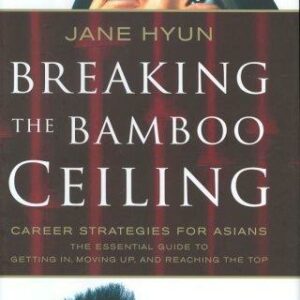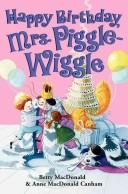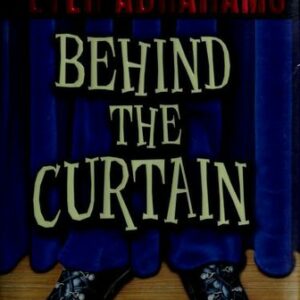The Senator’s Wife
$24.95
| Title | Range | Discount |
|---|---|---|
| Trade Discount | 5 + | 25% |
- Description
- Additional information
Description
Sue Miller is the best-selling author of the novels Lost in the Forest, The World Below, While I Was Gone, The Distinguished Guest, For Love, Family Pictures, and The Good Mother; the story collection Inventing the Abbotts; and the memoir The Story of My Father. She lives in Boston, Massachusetts.
Chapter One: Meri, June 1993From her perch in the middle of the backseat, Meri surveys the two in front—her husband, Nathan, and Sheila, the real estate agent. There is something generally vulnerable about the back of the head and the neck, she thinks. Nathan, for instance, looks a bit schoolboyish and sad from the back—his ears in particular—probably because of the haircut he had before they started out on this house-hunting trip.
They’ve been at it for two days. Meri has occupied the backseat the whole time—at first because that’s just how it happened when they all got in the car, and then by choice. She finds she likes the sense of distance. She likes the view she gets of their faces as they turn to speak to each other or to her—the profiles, the three-quarter angles. She feels she’s learning something new about Nathan, watching him this way, hearing him ask his real estate questions. He has so many! Questions about heating costs, about taxes, about the age of appliances, about insulation and school districts.
Why hasn’t she thought about any of this?
Because. Because the other reason she’s sitting in back is that she can’t bring herself to care very deeply about the house—whatever house it’s going to be. The whole thing is Nathan’s idea. Meri has sometimes spoken of it to him jokingly as "your big, fat idea," and, as it will turn out, that’s apt: the house will cost much more than they’d planned on spending.
But even that will have almost nothing to do with her. Nathan’s the one with money. Not that he has a lot. But some. He was living penuriously in their midwestern college town when she met him, salting away what he could. He lived penuriously before that in another college town, a saver there too. In the end it has piled up a little bit. But more important, he has a mother willing to give him his "legacy," as she calls it, before her death. She doesn’t need it, she has said repeatedly, and he does.
The idea of a parent not only willing, but able, to help you out financially, before or after death, is alien to Meri. A legacy? She will contribute nothing to the purchase of the house—she has nothing, and nothing is coming to her.
None of this means she’s unsympathetic to Nathan. She loves him. She understands his impulses and wishes. He was miserable when they met, trapped in the meanest of academic environments, where his brand of scholarship and his popularity with students was looked on with a combination of contempt and envy. To be offered a job at a good college in the East, a job in a department that values the kind of work he does, a tenure-track job, a job with the promise of what might be called real money in these circles—this is a coup, an achievement. An escape. They celebrated the news by going out to dinner in the best restaurant in Coleman—the Italian place—and by spending a good deal of the following weekend in bed.
The house they are planning to buy, whatever house it turns out to be, is supposed to be a further celebration of all this—of Nathan’s new luck, of his new place in the world. It’s supposed to mark, for him anyway, a great change, a beginning.
For Meri, its meaning is less clear. She’s sad to be leaving her life in Coleman and her apartment there. She’ll miss her job and the people she works with at the alumni magazine. She’ll miss their competitive telling of jokes. She’ll miss their long meetings, the meandering conversations that would finally and inevitably come around, in some mysterious way that always surprised all of them, to the topics for articles they might do for the magazine.
And she’s just a little worried about her marriage. She knows Nathan is planning a life, a life which the house is part of, that she’s not sure she wants to live. She doesn’t know whether she can be at home in the place he imagines, in the way he imagines her being. She suspects there’s trouble coming. But she feels if they can just hold on to the easy camaraderie and sexual heat of their early days, then they can find a way to keep talking about all this, a way of shaping their marriage to suit them both.
Their first day with Sheila was a waste of time. They had agreed on this in their room at the inn yesterday evening, lying down exhausted and fully clothed on top of the bedspread, not touching. Nathan’s hands were folded on his chest, as though he were arranged for viewing at a funeral home. They agreed they would have to raise their upper limit to get anything they really wanted—or Nathan suggested this and Meri went along. To her, everything they’d seen seemed possible. In each cramped little bungalow or shabby row house, while Nathan was getting visibly depressed, she was thinking how, if you just painted the pine paneling white or ripped up the orange carpet, if you took down the heavy layers of curtains and let the light in, the place could be livable. But because she could see Nathan’s sorrow, she didn’t try to sound hopeful or cheerful about anything. These weren’t qualities he seemed to like in her anyway. And back at the inn she didn’t even mention any of this. She agreed with him, she bolstered him. She was the one who finally got up from the bed and made the phone call to Sheila—told her they would need to start over with new rules the next day.
Sheila has quickly pulled together a revised list for today’s viewings. They’ve seen three so far. The first one was too far out of town—they both wanted to be able to walk or bike to work. The second one was just ugly, they all agreed over lunch. Fake-brick siding, a tiny dark kitchen. No. The third one, the one they’ve just come from, was lovely, a Victorian, but also much too big and in need of repairs. The porch actually bounced slightly as they strode across it, and inside Nathan pointed out the water stains on the ceilings and walls, the rotted window frames.
Now Sheila is saying that this next one, the one she’s driving them to, is a little out of their range, but she thinks it’s so perfect for them that she just wants them to take a peek. She mentions a price that makes Meri flinch in the backseat. She looks quickly at Nathan.
His face is in profile to her as he looks over at Sheila. Meri can see a small, bitter smile move across it. A danger sign, though Sheila doesn’t know that. But Meri can sense what’s coming. He’s about to tell Sheila it’s a lot out of their range. He’s about to ask her not to waste their time. Maybe he’s even about to say that they’re tired, that they’ve seen enough for one day.
But Sheila isn’t looking at him. Her small, childish voice rolls on, an innocent and unstoppable flow. Meri thinks of clear, shallow water. "It’s a double house, actually," she says. "You know, attached. The other side is owned by that old senator who’s retired now. Oh, I bet you know him: what’s his name? The famous one, more or less the Kennedy era. He even looked kind of like a Kennedy. Oh, shoot!" She smacks the steering wheel.
Meri watches as Nathan’s face changes, as the little smile disappears. He says, "Tom Naughton?"
"That’s it!" Sheila says. She turns and smiles at him. "They’ve owned it forever. I’ve got no idea how long. Since way before my time."
There’s a silence. Nathan turns to look at Meri. She can admire the sculpted line of his cheek, his jaw. "It wouldn’t hurt to look, I guess," he says.
"You know me," Meri answers. "Real estate voyeuse." She tries to make her voice sound ridiculously sexy, she shimmies her shoulders, and Nathan laughs. That’s good. He hasn’t laughed, it seems to her, for a few days.
But who’s Tom Naughton?
She’ll have to look him up.
When she met Nathan, Meri was living alone, in a place she loved—one vast room in an old brick building whose tall, bare windows looked out over the mostly empty main street of what was euphemistically called downtown Coleman. At one time the building had been a factory—harmoniums had been built there—and, factory-like, it had uselessly high ceilings, of pressed tin. In winter, the warm air rose up and sat just under these ceilings, far above Meri’s head. Or at least she assumed that’s where the warm air went. There was certainly none down where she lived. There, chilly breezes crisscrossed the room, on a stormy winter day sometimes actually stirring the piles of papers stacked everywhere. Meri wore multiple layers of clothes at home through the coldest months of the year, and huge green down booties all day and well into the night. She wore them to bed. She didn’t remove them until she had been under the covers for a while and the heat of her body had begun to tent her safely.
It was for this reason, among others, that she was grateful to have met Nathan in the early summer, when, even though it had no cross-ventilation, the apartment stayed cool and airy with the outsize windows thrown open. When she went barefoot at home, loving the feel of the painted wood under her feet. When she wore skimpy dresses that showed off how tall she was, how strongly built. When you could lie naked in comfort.
They had known each other for only a month, lying naked in comfort for much of that time, when he moved in with her. They had married a month after that. They had been married for ten months when they flew to Williston to spend this long weekend looking at houses they might live in.
When Sheila pulls up at the curb, Nathan sits quietly for a moment before getting out, looking up the walk. As though in reverence, Meri thinks. She follows his gaze. There’s a for-sale sign planted in the deep lawn, and behind it rise the two attached brick town houses, built at the turn of the twentieth century, probably, with lots of white carved-stone trim around the windows and doors—curlicues and animal shapes. There’s even a small couchant lion at the top of the stone steps up to the porch.
They get out and go up the long walk under a wide oak tree. Moss is growing between the bricks under their feet. Sheila is talking to Nathan about the number of bathrooms, about the kitchen, which they would probably eventually want to renovate. Meri walks behind them, fishing a cigarette—one of the four cigarettes she allows herself daily—from her purse. "I’ll come in in a minute," she says as Sheila works the front door with her key.
They don’t answer. Nathan disapproves of her smoking. Well, who wouldn’t? But the sign of this is that he pretends not to notice it, that he not only ignores her when she’s doing it, but any reference to it. It’s as though the cigarette is an invisibility device, she thinks. Presto!
Meri watches them step inside the house. She hears Nathan say, "Zowie." She finds her matches. She listens as they talk for a moment—he’s asking Sheila about the age of the house; something about the floors—and then their echoing footsteps and voices move back into the house’s depths.
She sits down on the stone balustrade that encircles the large, rectangular porch. It’s cool and damp under her buttocks. The porch is divided—Senator Naughton’s half, their half—by a shorter balustrade projecting out from the wall between the two heavy wooden front doors. The lion rests on top of this, his mouth slightly open, as if he’s just seen something that surprises him. She inhales deeply.
She inhales deeply and thinks about sex with Nathan. There’s been a drought, the last week or so, and she misses it. She misses him, she thinks. He has gone away from her, into thinking about his future.
Their future, she corrects herself.
From her perch, she can see up the long, broad street where nothing is happening, though somewhere children are yelling. The branches of the trees arch over from each side of the street and meet in the middle. The houses all sit back behind their imposing front yards. The Senator Naughton house is in a series of single and double houses that sit closer together at what must once have been seen as the less-fashionable end of the street. She turns and looks again into the opened doorway. She can see all the way through it, into a room full of light at the back of the house. The kitchen, no doubt. The kitchen they will want to renovate.
Meri thinks about this word: renovate. She’s not sure she wants to be a person who renovates anything. Renovating is different from painting the paneling or pulling up the orange wall-to-wall carpeting.
Different how?
Different because it takes money. That’s the problem, isn’t it? She’s stepping into a bourgeois life, and she’s being a little testy about it. Is it because the money isn’t hers? couldn’t be hers?
She doesn’t know. She inhales again, relishing the acrid taste.
Sex is what did it, of course. They couldn’t have been a more unlikely pair, more different. Nathan has what Meri has come to think of as credentials: a distinguished, or at least a solidly reputable, academic for a father—long deceased—a mother who has a silver tea service, inherited from her parents. Who used this tea service on the occasion when she met Meri. A mother who could say, when Meri admired it, "Oh, it’s just plate," as though that made it less remarkable.
In spite of herself and the choices she’s made in her own life, Meri has a nearly inborn respect for all this, probably as a result of watching too much television in the seventies. When she and her sister played with their Barbies, Meri’s Ken doll was always a doctor or a lawyer. Even then, even at eight or nine, she was a sucker for a notion of security derived from prime time. Meri’s sister, Lou, was contemptuous. Her Ken was a movie star, or a cowboy, or a guy who raced motorcycles. Meri’s Ken, she said, was a dult. This was a word they both used well into their teens. It was born of Meri’s childhood misunderstanding of the word adult, which she heard as two words, article and noun. Lou had co-opted it to simultaneously point at, and offer judgment on, the world of the grown-ups. Dults, almost all of them.
Once again Sue Miller takes us deep into the private lives of women with this mesmerizing portrait of two marriages exposed in all their shame and imperfection, and in their obdurate, unyielding love. The author of the iconic The Good Mother and the best-selling While I Was Gone brings her marvelous gifts to a powerful story of two unconventional women who unexpectedly change each other’s lives.
Meri is newly married, pregnant, and standing on the cusp of her life as a wife and mother, recognizing with some terror the gap between reality and expectation. Delia Naughton—wife of the two-term liberal senator Tom Naughton—is Meri’s new neighbor in the adjacent New England town house. Delia’s husband’s chronic infidelity has been an open secret in Washington circles, but despite the complexity of their relationship, the bond between them remains strong. What keeps people together, even in the midst of profound betrayal? How can a journey imperiled by, and sometimes indistinguishable from, compromise and disappointment culminate in healing and grace? Delia and Meri find themselves leading strangely parallel lives, both reckoning with the contours and mysteries of marriage, one refined and abraded by years of complicated intimacy, the other barely begun.
Here are all the things for which Sue Miller has always been beloved—the complexity of experience precisely rendered, the richness of character and emotion, the superb economy of style—fused with an utterly engrossing story that has a great deal to say to women, and men, of all ages.
Praise for Sue Miller’s The Senator’s Wife“Pure Miller . . . tasteful, elegant, sensuous . . . insightful, complex . . . The Senator’s Wife is Miller’s latest extended contemplation of marriage, and a master class in the refinement of craft.” —The Boston Globe
“Complex and beautifully drawn . . . with her keen eye and precise prose, Ms. Miller expertly conveys the passage of time and the evolution of emotions, giving readers the sense of lives fully lived.” —The Wall Street Journal“Miller plays her hand in a masterly fashion.” —The New York Times Book Review
“I closed The Senator’s Wife and instantly wished there was someone around with whom to discuss the Jodi Picoult like ending.” —USA Today
Lost in the Forest“But more important and distinctive is the power of a style that never announces itself as ‘style’ and that is consonant with a nonjudgmental poise of presentation. T. S. Eliot once wondered whether Shakespeare really ‘thought’ anything at all: ‘He was occupied with turning human actions into poetry,’ Eliot decided. Something similar might be said about Miller’s impartiality, her refusal to assign blame or ‘explain’ why things happen as they happened. Her sense of life one calls it that, inadequately is such that we are content to discover with her the powerful connections among the characters and events she imagines.” —The Boston Globe
“[K]een psychological insight, her radar for emotional nuance, her visceral understanding of familial dynamics. . . . Ms. Miller’s innate sympathy for her characters and her shrewd understanding of the mathematics of family life go a long way.” —The New York Times
“Miller has always been adept at rendering the complexities of family life, the way even well-intentioned, decent people can’t walk across a room without wounding at least one person they love.” —The New York Times Book Review
“It has been said that every good novelist is also a sociologist. Well, if sociologists can be said to shed light on how people must lead their lives at a given time and place in a society, then that statement certainly applies to Sue Miller, who has been providing just that kind of illumination, book to book, since she began her career more than 25 years ago with The Good Mother.” —The Washington Post Book World
“[Miller] succeeds brilliantly. . . . Miller’s characters have room to breathe, to be confused and petty and clear-headed and generous, to get swept up by passion, to fall in love and have children and watch as those children grow away from them, to fall in and out of love with their spouses, to stay married or get divorced, to have sex and drink wine and dance. Miller is adept at creating believable characters of all ages, from toddlers to great-grandparents, but her specialty is the middle-aged woman caught between her responsibilities and her desires. . . . Sue Miller has proven herself a master of contemporary life.” —Newsday
“Over the span of her many novels, Sue Miller has used simple, straightforward prose to plumb the irregular heart that beats deep within the relationships of men and women. Whether these relationships are made up of romantic attachments or the bonds that connect parents and children, Miller knows exactly how to corral their turbulent emotions and complex revelations into a fluid, compelling story of everyday life.” —Chicago Sun-Times
“Miller is a master of the domestic drama.” —The Sunday Oregonian
While I Was Gone
“Sue Miller is an Anne Tyler with edge, an Amy Tan without the sentimentality. Like Mary Gordon, she holds moral dilemmas up to the clarifying light of messy everyday reality. And like some Gail Sheehy of fiction, she tracks with authority all our difficult passages from childhood through old age. . . . Miller’s prose is seamlessly composed, tailored for introspection and quiet revelation rather than show.” —Newsday
“Miller’s greatest asset: her ability to construct a grainy, close-focus portrait of her characters, both in relation to each other and in their interior lives.” —The Boston Globe
“Miller transforms the stuff of troubled domesticity into serious entertainment for everyone.” —The Chicago Tribune
The World Below
“[W]hat Miller achieves consistently is a certain luminous portrait of the life lived day to day: the choices made, the regrets suffered, the cracks in the foundation we choose to confront or avoid.” —The Boston Globe
“Sue Miller’s work belongs at the top of the novel of domestic realism, of the relations between men and women, of hungry generations treading one another down but taking some pleasure in the interplay. Her achievement is to have portrayed this in language that for all its incidental poetry makes us also feel that the poetry isn’t what matters, that her stories are told by employing, as Wordsworth put it, ‘Words / Which speak of nothing more than what we are.’” —The New York Times Book Review
“Miller herself is a historian of the human condition, writ small.” —Newsday
“Miller, a veteran documentarian of contemporary domestic life in such engrossing works as The Good Mother and While I Was Gone, provides convincing, intimate glimpses into her characters’ hearts.” —Washington Post
“[Miller] has a keen eye for nature and ambiance. . . . Miller excels in chronicling nuances of domestic affections, half-truths, self-conscious creation of one’s self and the bittersweet fiction of memory.” —Chicago Tribune
“Reading a Sue Miller novel is like listening to your best friend tell a story. Over the years, she has cultivated a certain artlessness and a way with domestic details that make you feel as though you’re at a kitchen table, watching your friend while she embroiders her tale and chops onions for supper. The strength of her work is its detailed realism. There are food and weather both lovingly described, dirty diapers in a toilet bowl, a cross-eyed fox stole. And the characters are as solidly a part of the earth as their surroundings.” —Cleveland Plain Dealer
“Miller’s strength has always been her incisive grasp of family dynamics, the moments that pass but somehow sparkle in memory like glass shards, pointed, pointing, not quite fitting with what we think we know, or quietly illuminating something we’d rather not speak of.” —Detroit Free Press
The questions, discussion topics, and reading list that follow are intended to enhance your reading group’s discussion of Sue Miller’s mesmerizing new novel, The Senator’s Wife.
1. Have you read any of Sue Miller’s other works? What shared themes, if any, do you see in her new novel?
2. In the second paragraph of Chapter One, Miller says, "Meri has occupied the backseat the whole time—at first because that’s just how it happened when they all got in the car, then by choice." What does this tell us about Meri? Did your first impression of her turn out to be accurate?
3. Discuss the title. Why do you think Miller called her novel "The Senator’s Wife" when Meri’s story gets equal time?
4. How does Meri’s childhood, and specifically her relationship with her own mother, influence her relationship with Delia?
5. Re-read the top of page 33, Delia’s first encounter with Nathan. What is her perception of him and his attitude towards Meri? Do you think she’s right?
6. Several times in the novel, it’s suggested that moving to a new home equals an opportunity for new beginnings. Which move proves to be most important to Delia?
7. Meri seems to take great pleasure in keeping secrets. Why do you think that is? How does it help her, and how does it harm her? Ultimately, is it good for her marriage?
8. On page 61 Meri tells Nathan about the effect Delia has on her. Discuss the idea of aperçus—why do you think Meri is so shaken by Delia’s statements? Have you ever known someone who has a similar effect on you?
9. One major theme in the novel is the conflict between public and private lives. Which character is most comfortable living in public? Least comfortable? In what ways do Meri, Delia, Nathan, and Tom each have both private and public aspects?
10. At times there are parallels between Meri and Tom, Delia and Nathan, and at other times the pairings are rearranged. Who do you think is most similar? Most unlike each other? Who would you most like to spend time with, if these were real people?
11. Delia reads Anne Apthorp’s letters, and the results are beneficial and illuminating. What is the result when Meri reads the Naughtons’ correspondence?
12. What purpose does the 50–page flashback (beginning on page 91) serve? What do we learn about these characters that we might not know otherwise?
13. Meri has a difficult time accepting her pregnancy and motherhood. What does this say about her? Are we led to dislike her, or feel compassionate towards her? How do you think Miller feels about the character she created?
14. Delia’s relationships with her grown children are quite varied. Why do you think she wound up with three such different results? What kind of mother was she?
15. Discuss Delia and Tom’s relationship. Who has the most power, and how is it wielded? What would you have done in Delia’s place at these key junctures: When she found out about Carolee; when Tom had his stroke; when she walked in on Tom and Meri?
16. Nursing in public is challenging for many women, even today. On page 229, Meri does it in 1994, with heartbreaking results. Have you ever nursed in public? What do you think of the practice? How does this tie in to Miller’s public vs. private themes?
17. On page 301, Tom says to Meri, "Mea culpa!" Is he really taking the blame? Does he deserve it?
18. Reflecting upon the events of 1994, Meri thinks on page 305, "In the end she has come to think it was Tom who changed her more, who gave her something, something that she didn’t know she needed." What did Tom give her? Is she right, about him changing her more?
19. Re-read the last paragraph of the novel. Did Meri really act out of love? Why do you think she did it? What price did she pay, if any?
Additional information
| Weight | 1 oz |
|---|---|
| Dimensions | 1 × 7 × 10 in |











